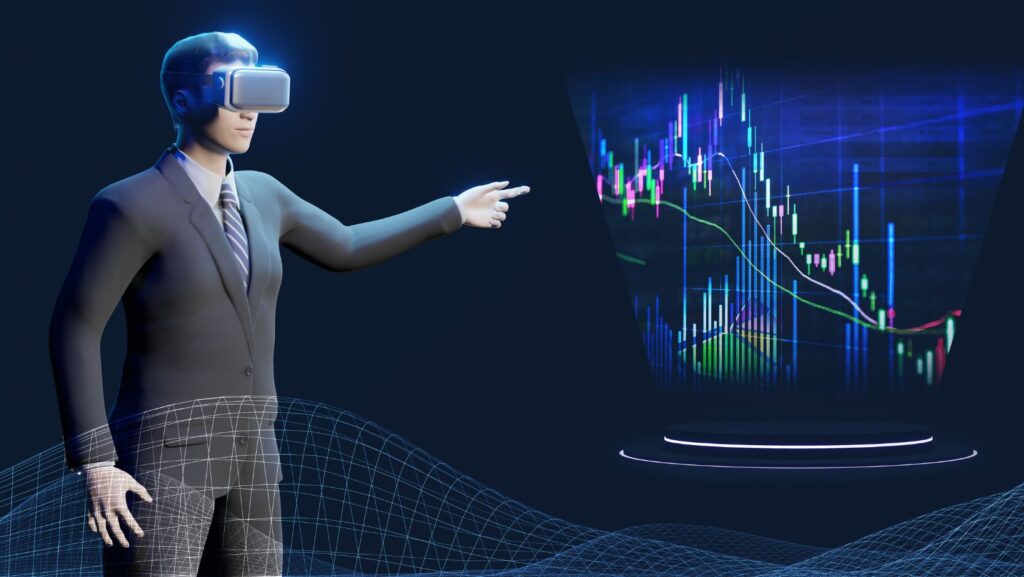
Social trading is getting more and more popular, driven by technological advancements, regulatory changes, and the increasing demand for more accessible financial markets.
With innovations such as artificial intelligence (AI), blockchain, and automation, social trading software is transforming the way traders interact with forex markets and the ways they are able to make a profit.
This article will showcase the future of social trading, highlighting key trends and innovations that will influence this industry in the coming years.
Artificial intelligence (AI) and machine learning (ML) are playing a crucial role in the development of social trading software. These technologies enable platforms to analyze big data, identify profitable trading strategies, and optimize trade execution for traders.
1. AI-powered trade recommendations
AI-driven algorithms can analyze market trends, historical data, and sentiment indicators to provide trade recommendations. This helps both beginner and experienced traders make informed decisions with minimal manual effort.
2. Smart copy trading
Traditional copy trading allows users to replicate the trades of experienced investors. However, AI-powered copy trading takes this a step further by dynamically selecting traders based on real-time performance, risk levels, and market conditions.
3. Automated risk management
Machine learning models can assess an investor’s risk tolerance and suggest optimal position sizing, stop-loss levels, and portfolio diversification strategies. This reduces the likelihood of excessive losses and improves long-term profitability.
Blockchain technology is revolutionizing the financial industry, and social trading software is no exception.
The integration of blockchain enhances transparency, security, and trust within trading platforms.
1. Decentralized trading platforms
Decentralized finance (DeFi) is eliminating the need for intermediaries in financial transactions. Decentralized social trading platforms allow users to engage in copy trading and strategy-sharing without relying on a central authority.
2. Transparent trading records
Blockchain technology ensures that all trade executions, historical performances, and trader activities are recorded on an immutable ledger. This prevents manipulation and enhances trust in the trading community.
3. Smart contracts for trade execution
Smart contracts enable automatic trade execution based on pre-set conditions. This ensures seamless transactions without delays, reducing the chances of human errors and improving trading efficiency.
The future of social trading platforms will likely incorporate gamification elements to enhance user engagement and learning.
1. Leaderboards and performance metrics
Platforms are introducing ranking systems that reward traders based on performance, risk management, and consistency. These leaderboards provide transparency and help users select reliable traders to follow.
2. Interactive learning modules
Social trading platforms are incorporating educational content, quizzes, and simulated trading environments to help users develop trading skills before investing real money.
3. Community-driven insights
Traders can discuss strategies, share market analysis, and collaborate on investment decisions, fostering a sense of community and knowledge-sharing.
Enhanced Security and Regulatory Compliance
Security and regulatory compliance are well-monitored in most countries where forex trading is popular, including Cyprus, the United Arab Emirates, England, and Australia.
1. Stricter regulations
Regulatory authorities are expected to introduce clearer guidelines for social trading platforms, ensuring that investors are protected from fraudulent activities and market manipulation.
2. Advanced cybersecurity measures
With increasing cyber threats, social trading platforms will invest in stronger encryption protocols, multi-factor authentication, and real-time fraud detection systems to safeguard user funds and data.
3. KYC and AML compliance
Know Your Customer (KYC) and Anti-Money Laundering (AML) regulations will become more stringent, requiring platforms to verify user identities and track suspicious transactions.
The Rise of Mobile and AI-Powered Trading Assistants
With the rise of mobile trading, AI-powered trading assistants will become more prevalent, offering real-time market updates, trade alerts, and personalized investment advice.
1. Voice-activated trading assistants
Users will be able to execute trades and receive market insights through voice-activated AI assistants, improving convenience and accessibility.
2. AI Chatbots for customer support
AI-driven chatbots will enhance customer support by answering queries, troubleshooting issues, and providing instant assistance.
Platforms such as eToro, ZuluTrade, and NAGA integrate AI-powered analytics, real-time risk assessment, and automated trade execution to enhance user experience.
These platforms offer intuitive interfaces, comprehensive educational tools, and community-driven insights, making them ideal for both novice and experienced traders.
Additionally, blockchain-based platforms such as Covesting and dYdX are emerging, offering decentralized trading with enhanced security and transparency.
Other notable platforms, including Tradeo, Darwinex, and FXTM Invest, provide innovative copy trading features and in-depth trader performance analytics. As social trading technology continues to evolve, these platforms will continue to refine their features, providing investors with smarter and more secure ways to trade.
The speed at which trades are copied on social trading plays a crucial role in ensuring optimal trade execution. Faster copying speeds allow traders to enter and exit positions with minimal slippage, maximizing potential profits and reducing risk exposure. This is particularly important in highly volatile markets, where price fluctuations can occur within seconds. One example of software excelling in this area is Takeprofit Tech, which focuses on ultra-fast trade execution. Takeprofit Tech Social Trading enhances trade replication accuracy, providing users with a seamless trading experience.
Conclusion
Social trading is a secure and innovative way to participate in financial markets. The future of social trading is set to be shaped by AI-driven automation, blockchain-based transparency, gamified learning, enhanced security measures, and mobile-friendly solutions. As these technologies continue to grow, social trading will offer more advanced tools, making trading accessible to a wider audience.
However, investors must remain informed, practice risk management, and choose platforms that align with regulatory standards to ensure a safe and profitable trading experience.









